Co-design with marginalised people: designers’ perceptions of barriers and enablers
Read More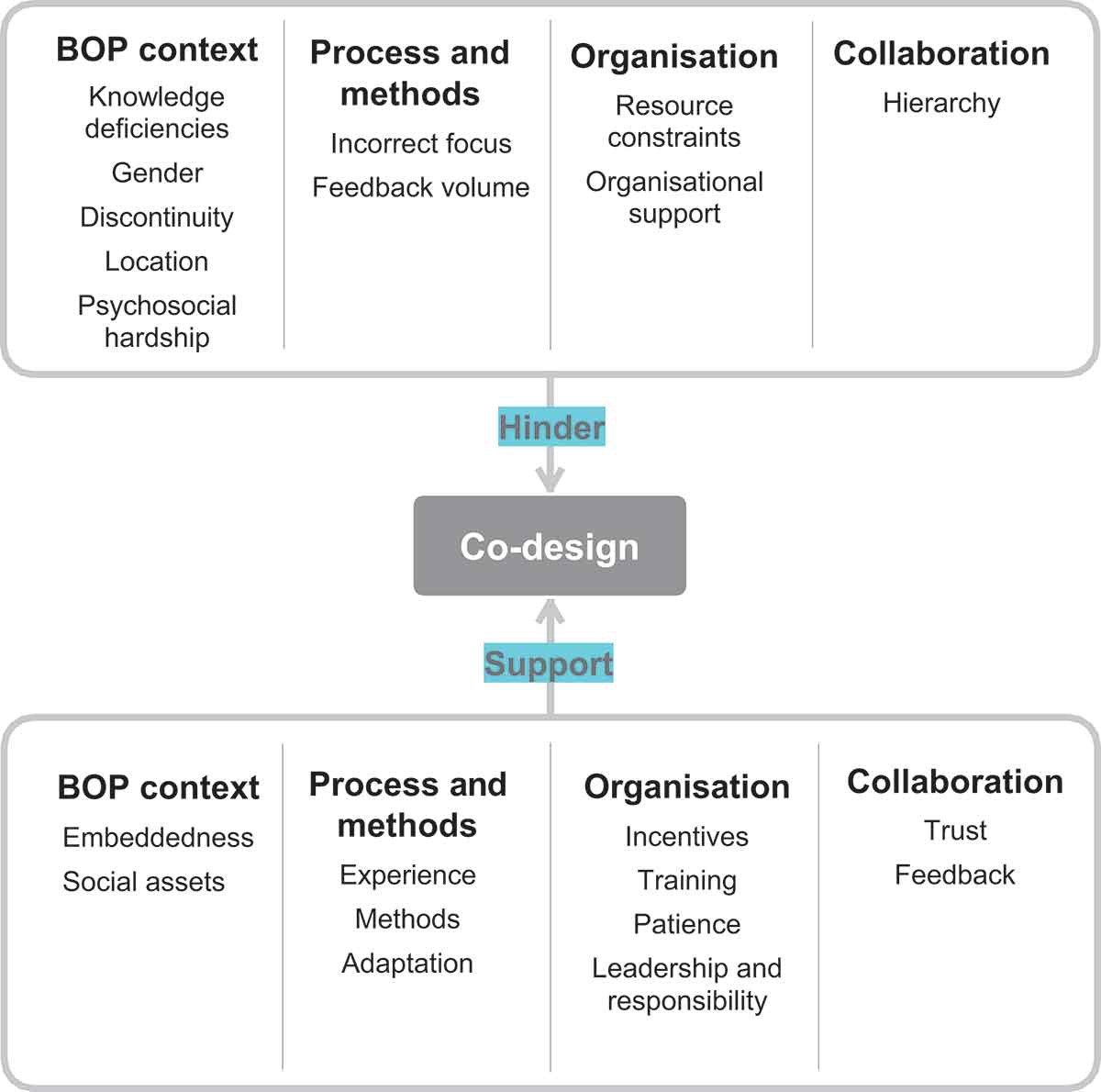

Co-design with marginalised people: designers’ perceptions of barriers and enablers
Read More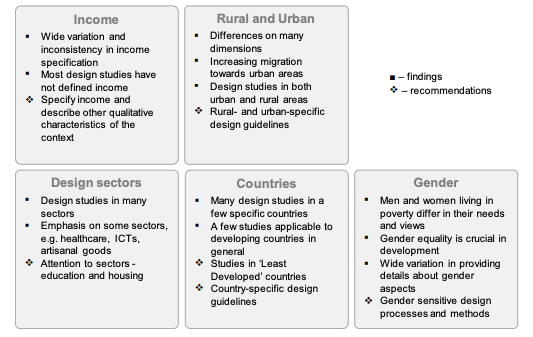
Abstract A data analysis method based on artificial neural networks aiming to support cause-and-effect analysis in design exploration studies is presented. The method clusters and aggregates the effects of multiple design variables based on the structural hierarchy of the evaluated system. The proposed method is exemplified in a case study showing Designing frugal innovations is […]
Read More
A workshop on frugal innovation. Frugal innovations aim at doing more and better with less. It can be a low-tech clay fridge or a high-tech portable ultrasound medical device.
Read More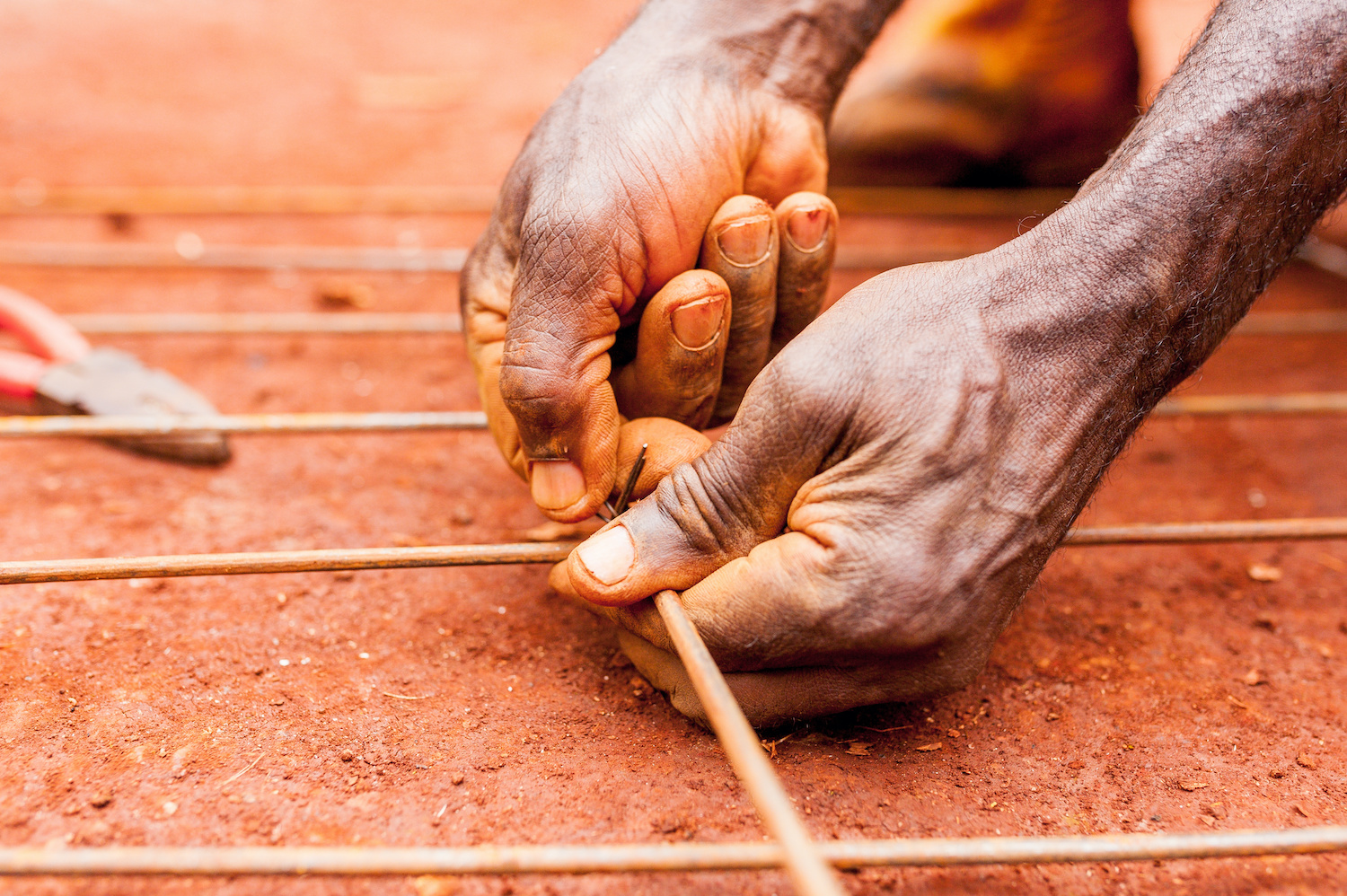
Investigation of the Product Design Process in Informal Microenterprises in Tanzania
Read More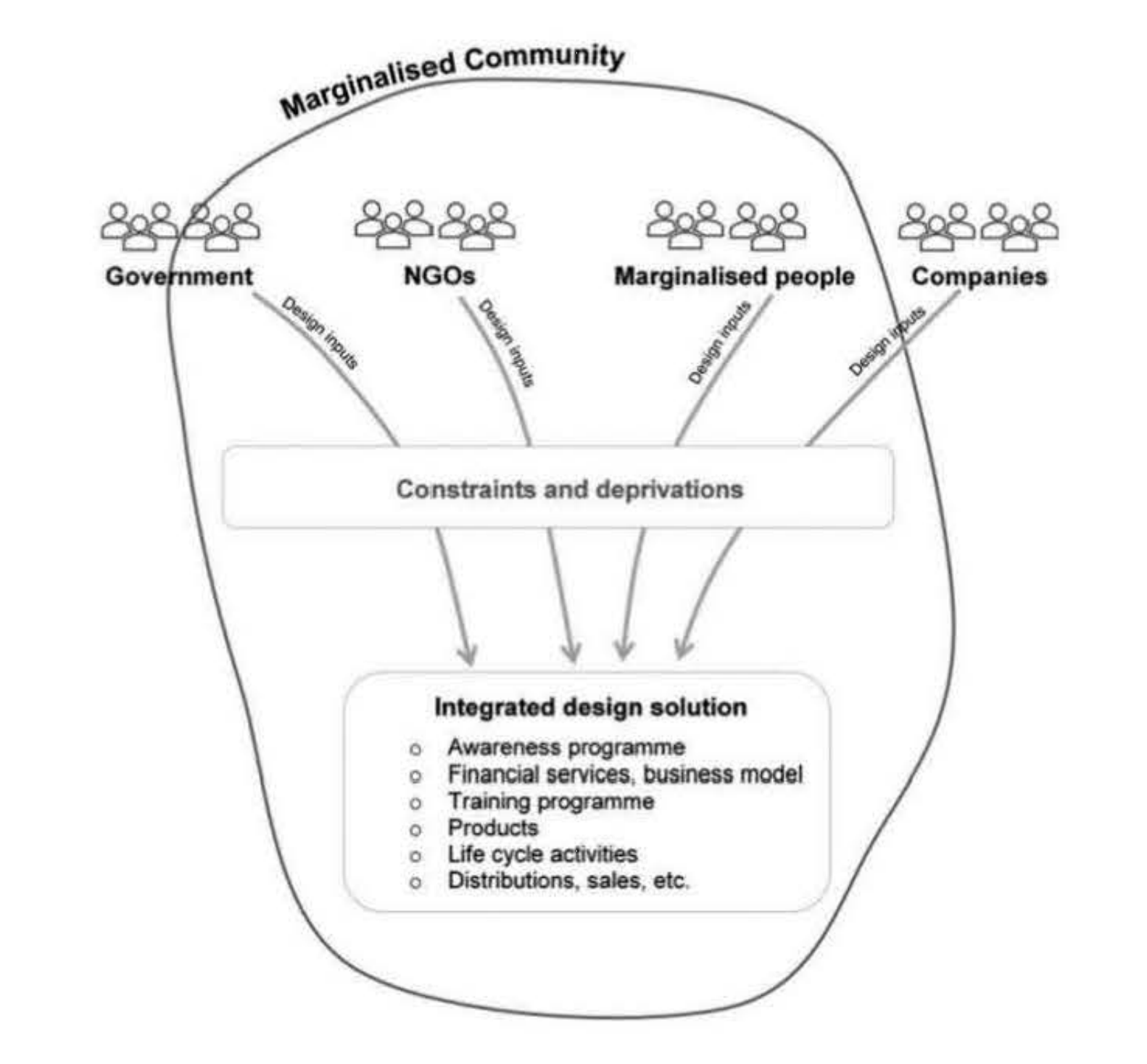
Abstract Poverty is characterized by many different constraints at individual, institutional, economic, and technological levels. To satisfy unmet or underserved needs of people living in poverty, it is essential to address all the relevant constraints in the target context through the design of integrated solutions. Although previous studies in this field have indicated that designing […]
Read More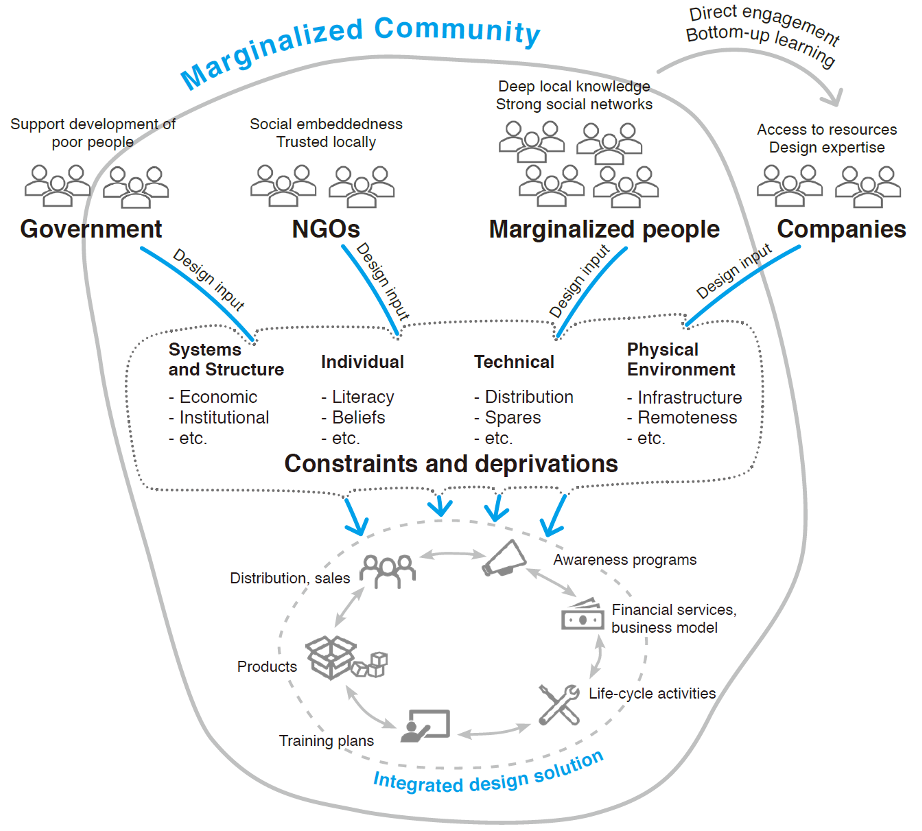
Businesses are recognising and pursuing the opportunity to design appropriate products and services to serve the market known as the Base of the Pyramid (BOP) market — broadly defined as 4 billion low-income people in developing countries. There are many reasons for the pursuit of BOP markets. First, the BOP is the most significant and […]
Read More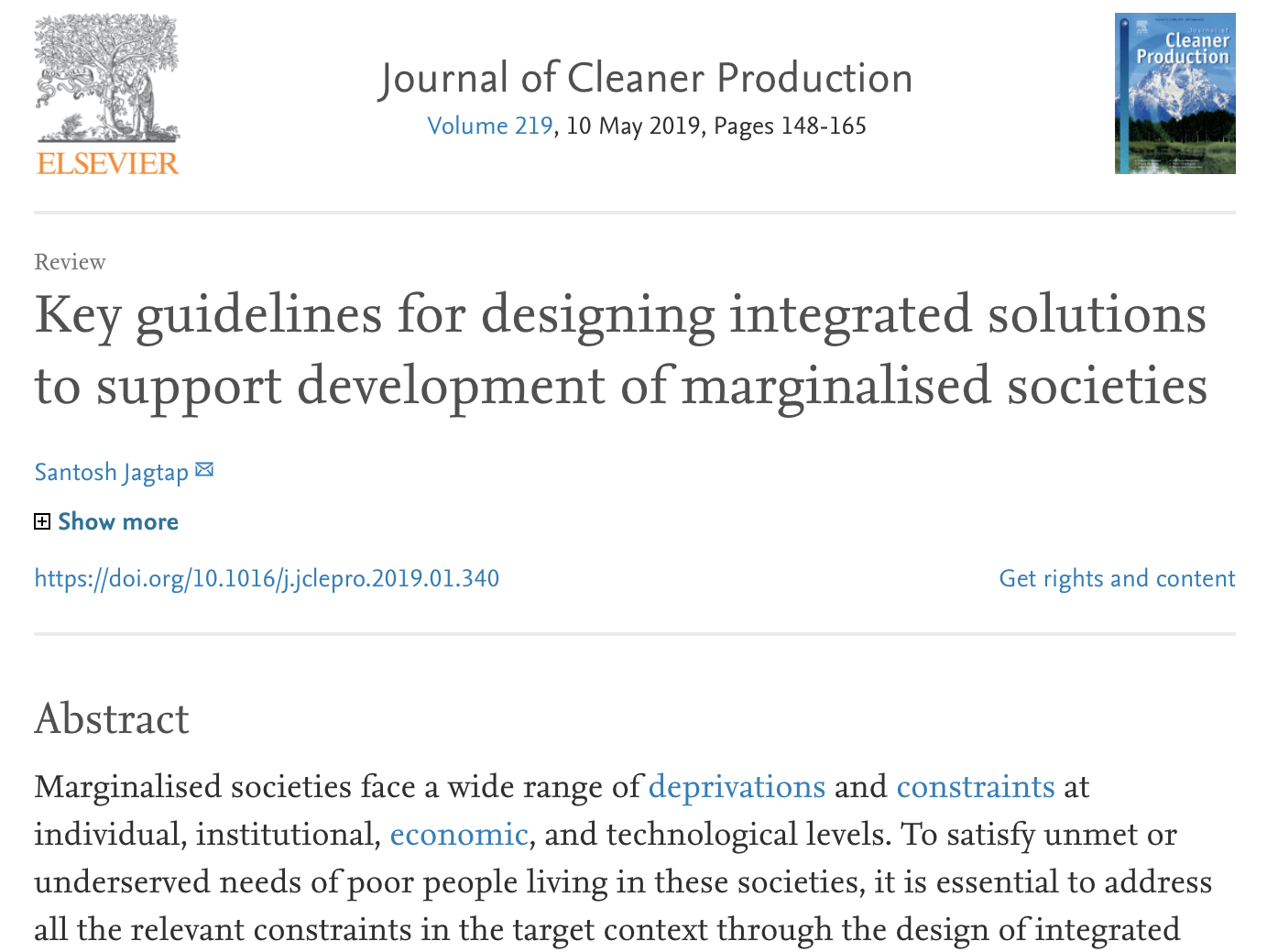
ABSTRACT Marginalised societies face a wide range of deprivations and constraints at individual, institutional, economic, and technological levels. To satisfy unmet or underserved needs of poor people living in these societies, it is essential to address all the relevant constraints in the target context through the design of integrated solutions. Many studies have explored the […]
Read More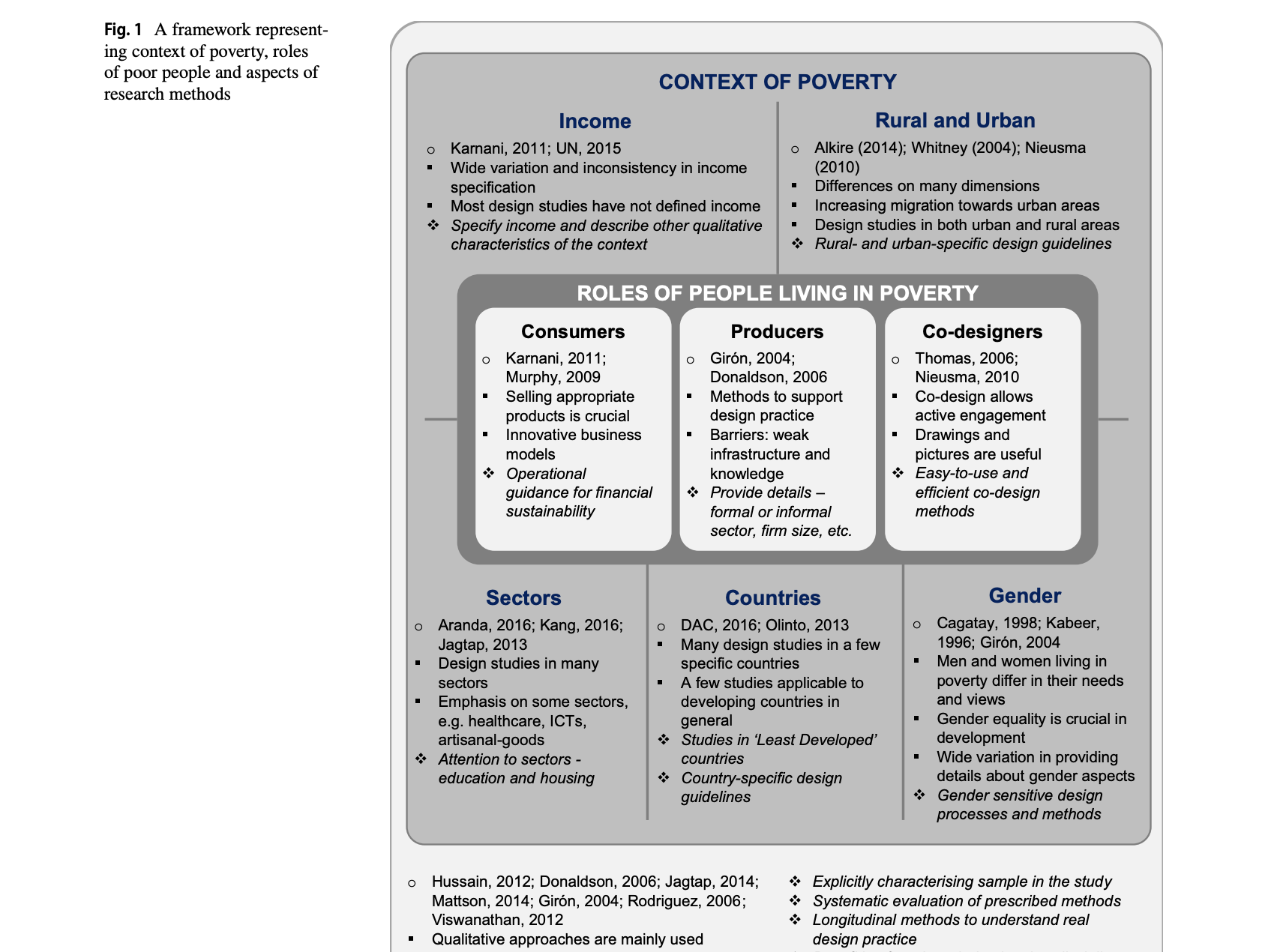
ABSTRACT Design is essential to fulfil unmet or under-served needs of resource-poor societies, supporting their social and human development. A great deal of design research has been undertaken in such low resource settings, and is discussed under different names, such as ‘community development engineering’, ‘humanitarian engineering’, ‘appropriate technology’, ‘design for development’, ‘design at the Base […]
Read More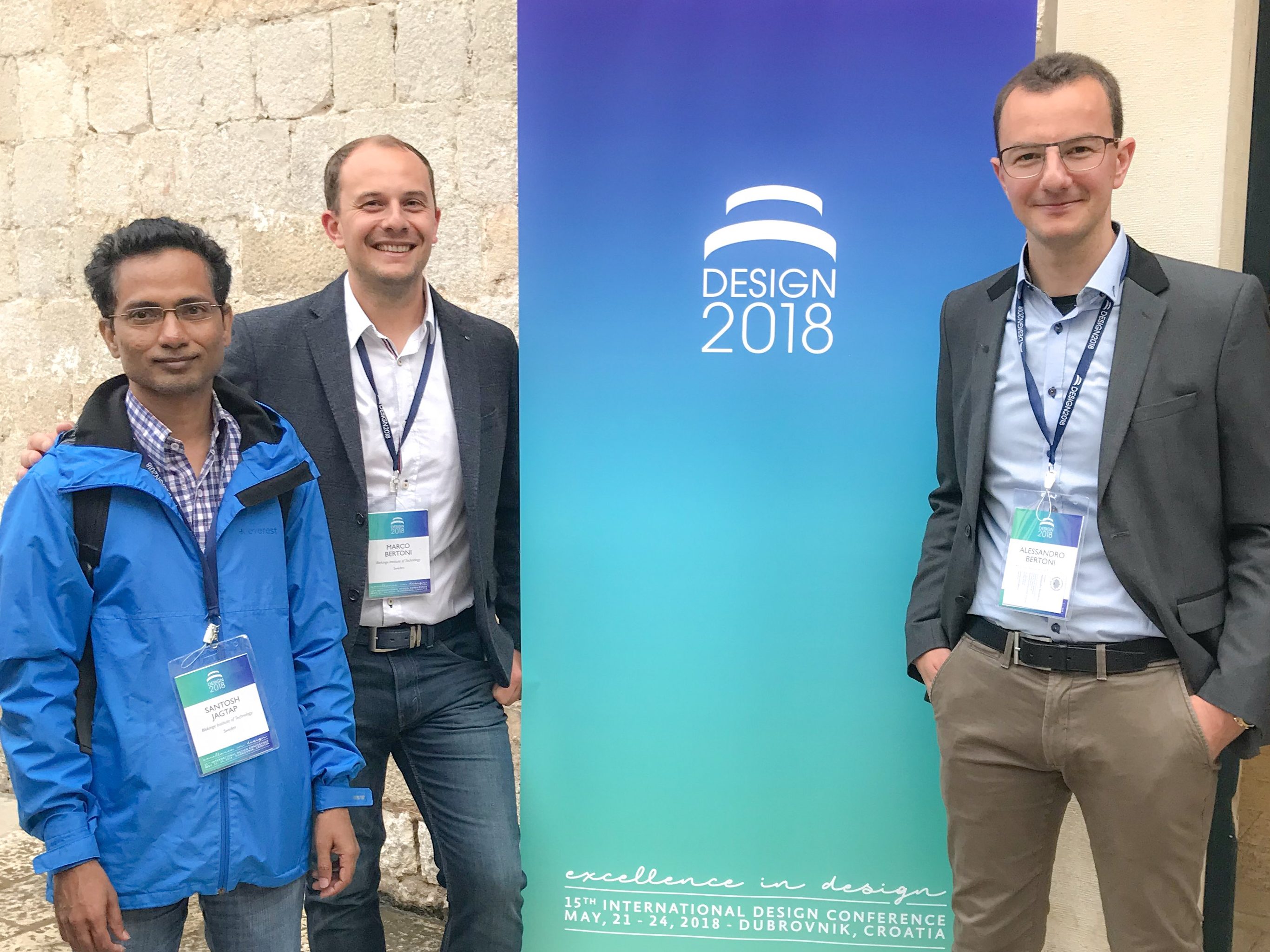
A shiny Dubrovnik welcomed researchers and practitioners to the 15th International DESIGN conference. DESIGN is a biannual event organised by the Design Society, being a main forum to exchange experiences and lessons learned about engineering design from a variety of perspectives, disciplines, and fields. BTH PDRL received one of the 3 ‘outstanding contributions’ awards for […]
Read More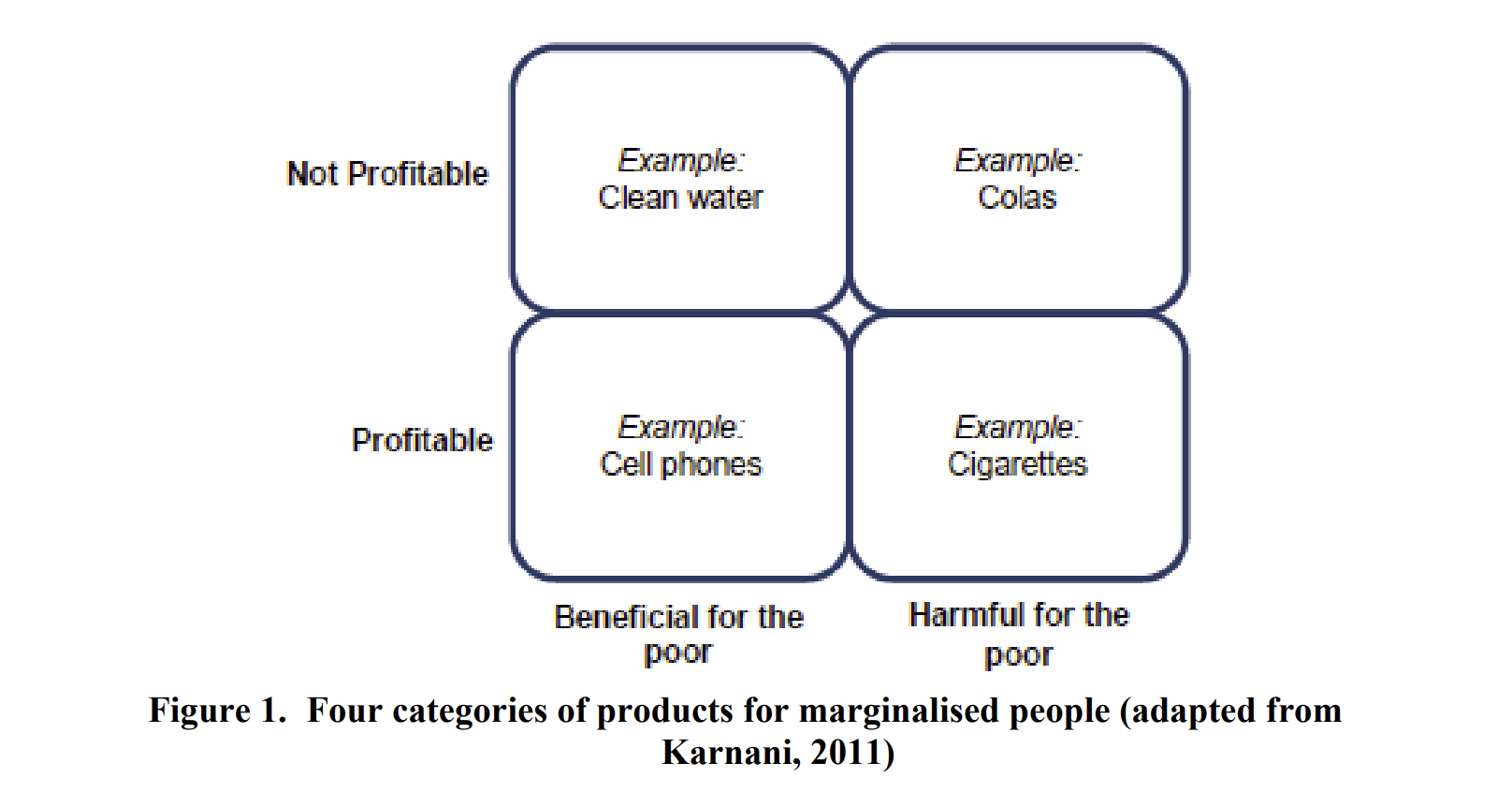
ABSTRACT Design is imperative to satisfy needs of people in resource-limited societies. Many design studies have been carried out in the context of such societies in developing countries, and are discussed under names such as humanitarian engineering, frugal innovations, appropriate technology, design at the Base of the Pyramid, design for development, etc. In this paper, […]
Read More